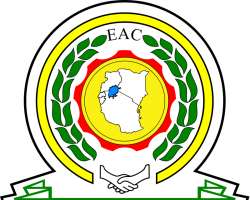EACJ Dismisses Case Challenging Summit Directives, Says Denial of Kenyan Citizen Entry into Uganda Unlawful

ARUSHA, Tanzania, May 20, 2013/African Press Organization (APO)/ -- The EACJ wound up its second month-long session Friday with the First Instance Division dismissing a case by a Tanzanian citizen seeking orders to restrain the East African Community Secretariat from carrying out activities geared towards the realization of the EAC Political Federation.
The case lodged by Mr. Alvin Kahoho sought to block the EAC Secretariat from carrying out the said activities as directed by the 13th Ordinary Summit of EAC Heads of State held in Burundi in November 2011, claiming the directive was an infringement of Article 11 (5) and 73 of the EAC Treaty.
The Court in its judgment however stated that the Summit can direct either one of the Secretariat or the Council of Ministers in matters of implementation of the EAC Treaty and therefore saw no breach of the Treaty.
In another matter before it, the Court upheld a claim by a Kenyan citizen and human rights activist Mr. Samuel Mukira Mohochi that his being denied entry into Uganda in 2011 was illegal and unlawful.
The Court said the actions of denial of entry, detention, removal and return of Mr. Mohochi to Kenya without offering any explanation and without hearing his defense were illegal, unlawful and in violation of his rights under Articles 104, 6 (d), 7 (2) of the Treaty and 7 of the Common Market Protocol.
The Kenyan citizen was denied entry into Uganda, restrained and detained at the Immigration Office at Entebbe International Airport and subsequently deported on 13 April 2011.
Notes to Editors:
Article 6 (d)of the Treaty for the establishment of the East African Community; the principle of subsidiary with emphasis on multi-level participation and the involvement of a wide range of stake- holders in the process of integration;
Article 7 (2) of the EAC Treaty; The Partner States under take to abide by the principles of good
Governance, including adherence to the principles of democracy, the rule of law social justice and the maintenance of universally accepted standards of human right.
Article 104 of the EAC Treaty; The Partner States agree to adopt measures to achieve the free movement of per sons, labour and services and to ensure the enjoyment of the right of establishment and residence of their citizens within the Community.
Article 7 of the Protocol on establishment of the EAC Common Market;
The Partner States hereby guarantee the free movement of persons who are citizens of the other Partner States, within their territories.
Article 11 (5) of the Treaty ; Subject to this Treaty, the Summit may delegate the exercise of any of its functions, subject to any conditions which it may think fit to impose, to a member of the Summit, to the Council or to the Secretary General.
Article 73 of the Treaty; Persons employed in the service of the Community:
(a) shall be immune from civil process with respect to omissions or acts
performed by them in their official capacity; and
(b) shall be accorded immunities from immigration restrict ions and
alien registration.
About the EACJ
The East African Court of Justice (EACJ or 'the Court'), is one of the organs of the East African Community established under Article 9 of the Treaty for the Establishment of the East African Community. Established in November 2001, the Court's major responsibility is to ensure the adherence to law in the interpretation and application of and compliance with the EAC Treaty.
Arusha is the temporary seat of the Court until the Summit determines its permanent seat. The High Courts of the Partner States serve as sub-registries.
